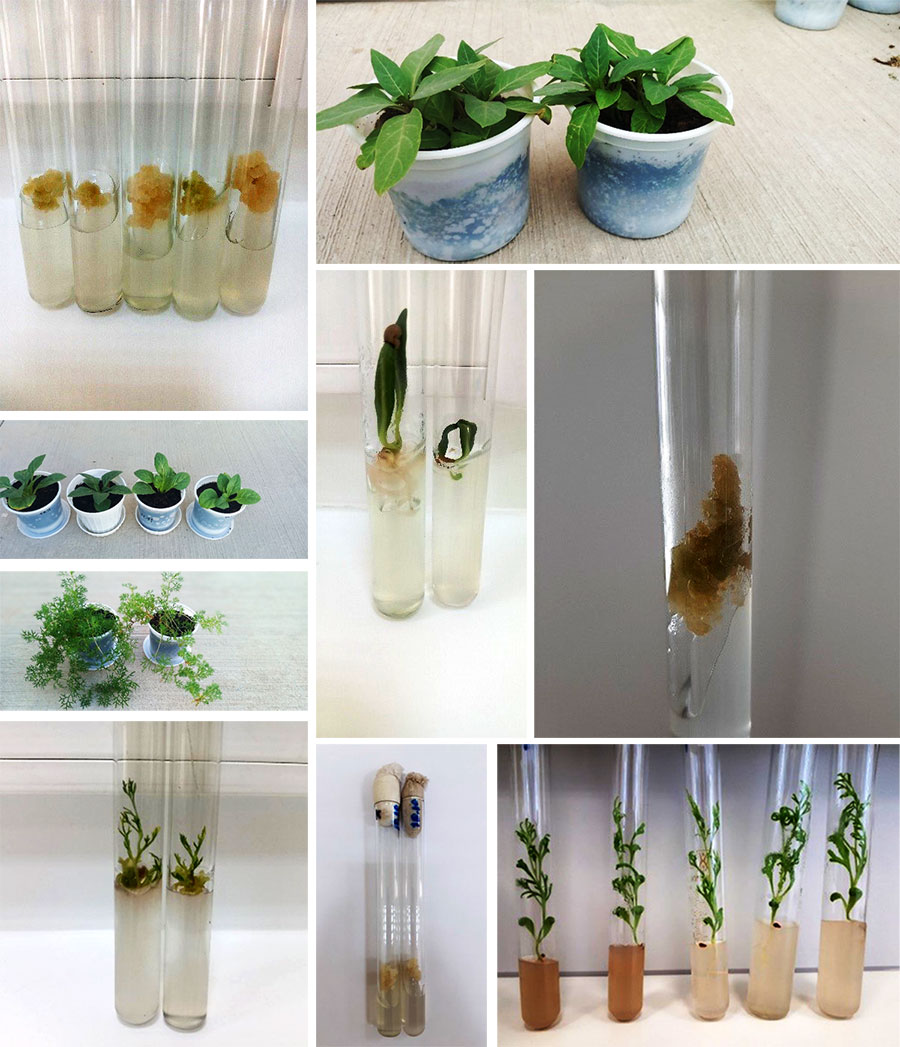Scientists of the Institute of General and Applied Biology at the Oguz Han Engineering and Technology University of Turkmenistan are conducting scientific research in the field of using modern biotechnologies in the production of rare medicinal plants.
The focus of the specialists is on cultivating endemic and relict plants of Turkmenistan using the biotechnology of microclonal propagation.
As the scientists of the Institute explain, the microclonal propagation method has several advantages over existing traditional propagation methods. This method solves the problem of a shortage of plant raw materials, difficult-to-plant and endangered plants, obtaining phytomass free from herbicides, pesticides and heavy metals, as well as producing difficult-to-synthesize and expensive biologically active substances widely used in pharmaceuticals, agriculture and other industries.

According to Mahym Nepesova, the head of the laboratory, the Institute has accumulated extensive experience in cultivating endemic plants such as atropa komarovii and Turkmen mandrake, as well as the relict plant malacocarpus, using this method and adapting them to the soil.
Atropa komarovii and Turkmen mandrake (Mandragora turcomanica Mizg.) belong to the nightshade family. There are 5 species of each plant in the world, and 1 species in Turkmenistan in the Southwestern Kopetdag. These rare species are included in the Red Book of Turkmenistan and are protected by the Syunt-Hasardag State Nature Reserve. The plants contain a large amount of alkaloid substances. In folk medicine, atropa komarovii is used as an analgesic, antispasmodic, and antidote for poisoning. Turkmen mandrake is known as an analgesic for joint pain, insomnia and for treating purulent lesions and wounds.
Malacocarpus (Malacocarpus crithmifolius) is a member of the rue family, derived from the Greek words malacos and carpos, meaning "ripe fruit." In Turkmenistan, there is 1 species of this Red Book plant, which is protected by the Syunt-Hasardag, Kopetdag and Gaplangyr State Nature Reserves. Malacocarpus is considered a promising food and ornamental plant suitable for cultivation on saline soils. Extracts prepared from malacocarpus fruits were used in folk medicine for gastrointestinal diseases. A large amount of alkaloids are found in the leaves of the plant. Its ripe fruits are considered edible and are rich in ascorbic acid, sugars and organic acids.
Currently, the phytochemical composition of these plants grown in vitro (in a test tube) is being studied using modern laboratory equipment, and the properties of biologically active substances are being investigated. Recent research by the institute's scientists found that alkaloids accumulate in the composition of in vitro grown plants in the same way as in their natural form.
The conduct of research work using new technologies in plant cultivation, constant experiments, and the search for productive solutions in the institute's scientific laboratories are driven by the goals of preserving rare and endangered species of medicinal plants and their pharmaceutical value.
It is worth noting that students of the university's biotechnology faculty actively participate in this work and show a lively interest in it. The institute's scientists conduct regular classes for university students on the application of the microclonal propagation method and note the effectiveness of the training. It is emphasized that senior students are already successfully practicing independent cultivation of medicinal plants using the effective biotechnological method.








